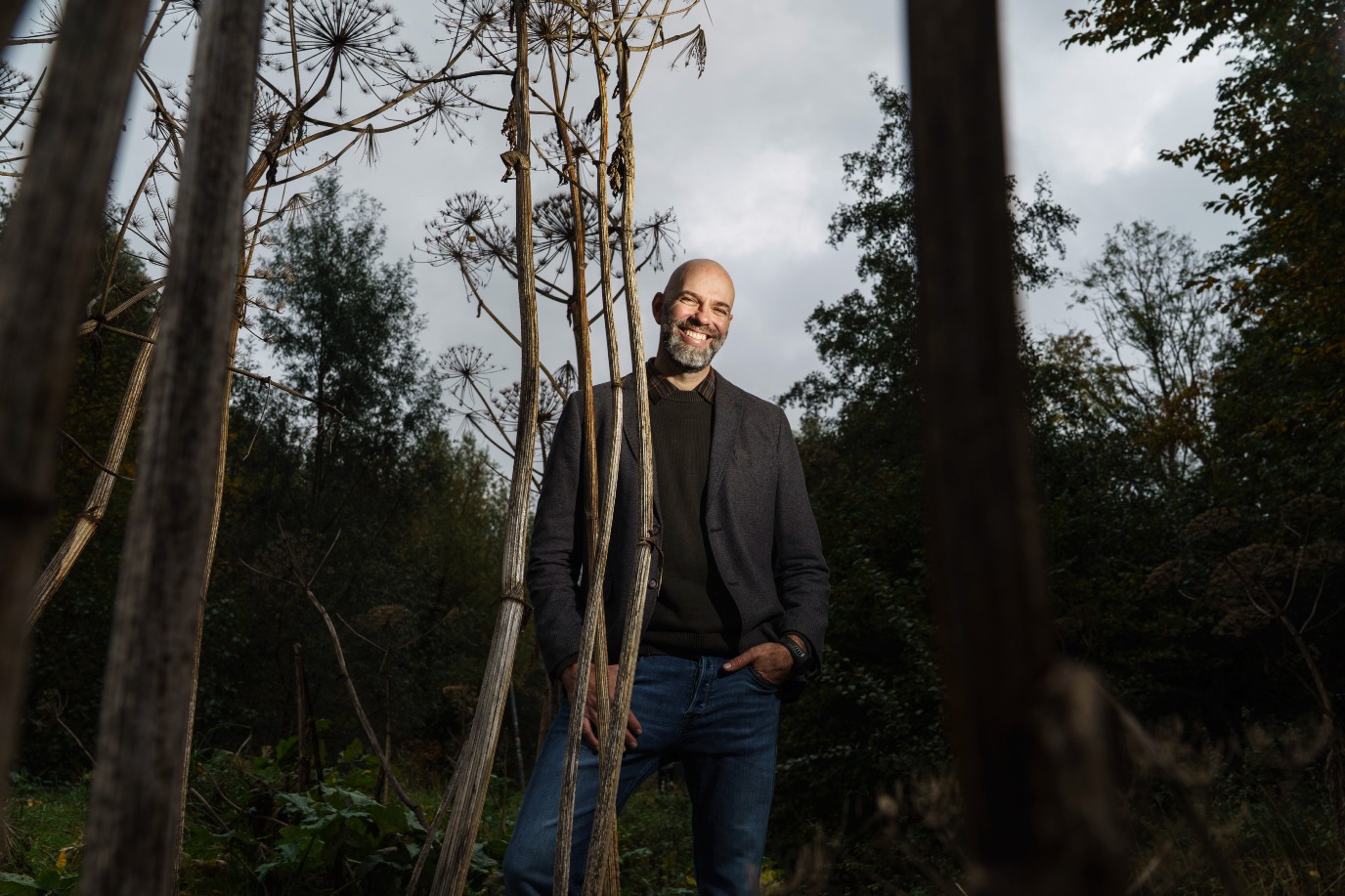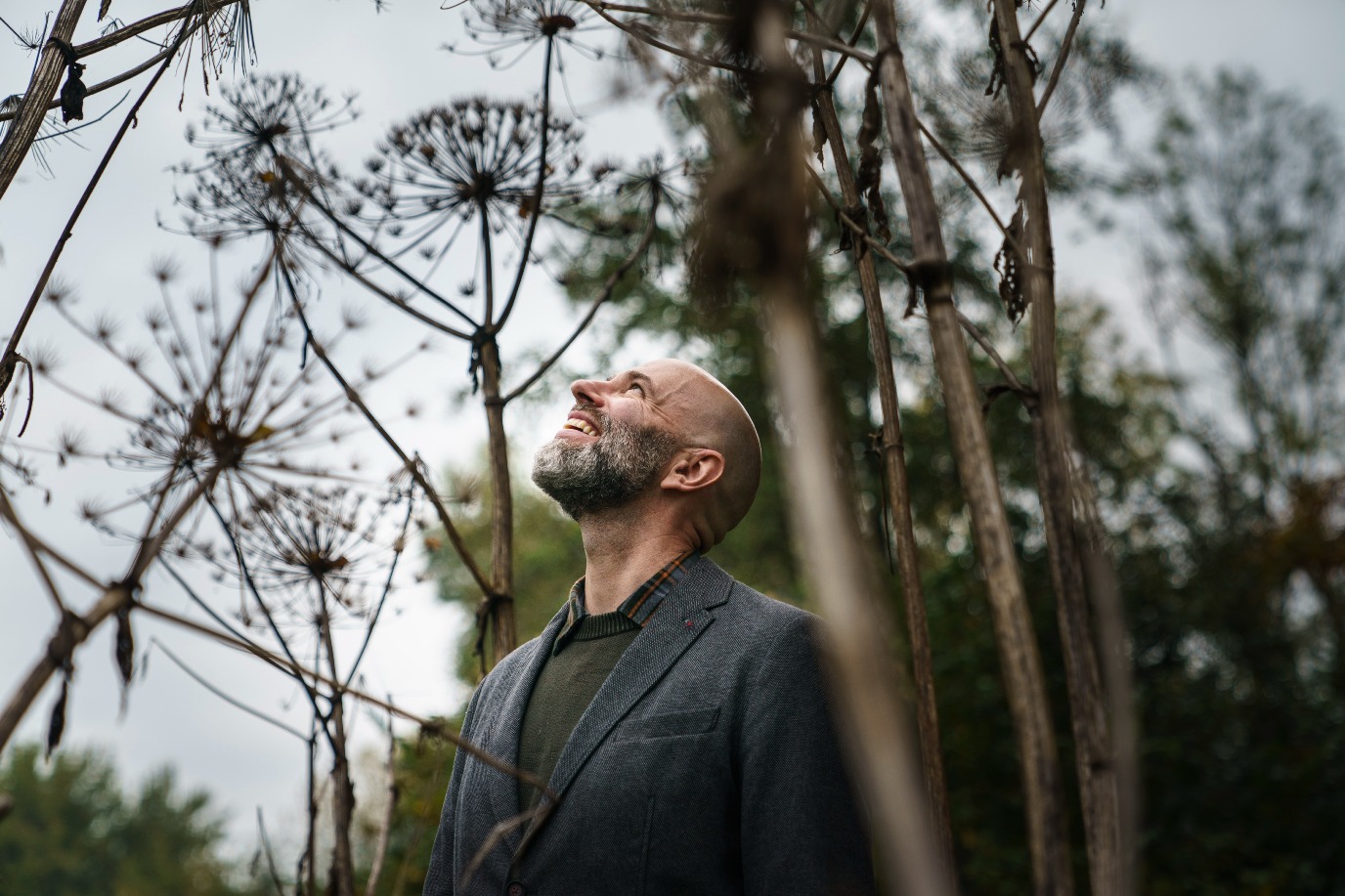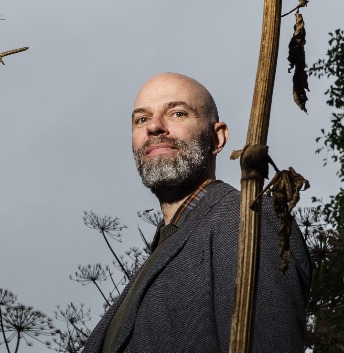Language reveals intentions
Heads of state, international organizations, countries, companies, provinces, municipalities... virtually everywhere, people are talking about the importance of biodiversity and measures to combat climate change. However, hardly any steps are being taken. Ecolinguist Matt Drury knows why. ‘If you look at the word choice and sentence structure, you see a deeply ingrained resistance. A glimmer of hope: ‘People aren’t aware of it.’
Not yet, anyway.
Text: Helma Erkelens / Photos: Reyer Boxem
Almost everything we know and believe reaches us through language. We use language in an effort to make sense of the world around us and construct our reality. ‘Our ideas take shape through language, and we act according to them, which in turn affects our language,’ says Drury. It is all about what words and sentence structures you use. You can either use them to nurture a connection with the subject — or not. The way language and social context influence each other is the essence of sociolinguistics. Ecolinguistics adds the ecological context to this: the relationship between language and whether or not ecological problems are solved.

Sustainability ambitions under scrutiny
From an ecolinguistic perspective, Drury analyzed texts dealing with the sustainability ambitions of the United Nations and the University of Groningen, as well as the agricultural policies of China and the European Union. His main conclusion: many fancy words, but the language used is an overwhelming indication that people, organizations, and countries with vested interests do not really want to take any steps — or only very small ones. Or they do not consider the change feasible or realistic. You see this everywhere — both locally and internationally — and at all levels, regardless of the language or culture of the speakers and authors.’
How can you tell?
‘The texts are written in an impersonal and passive style. The frequent use of passive constructions—such as ‘it is being’ or ‘it happens’ —serves as a clear indicator of this. But also by turning verbs into nouns, such as ‘deforestation’, ‘greening’ instead of using verbs such as ‘deforesting’ and ‘greening’. As a result, you don’t take it personally. You don’t have to feel responsible. As a matter of fact, no one will feel responsible. This way of communicating will not prevent species from disappearing or climate change from happening.’
On every farm, at least 3% of arable land is dedicated to biodiversity and non-productive elements
It’s all about the money..
‘This global resistance stems from our economics-based mindset. Virtually all the speeches and documents I examined confirm that money comes first in our world . Everyone wants more, more, more. We work against one another, not with one another, because we consider competition essential for growth. We have to consume as much as possible, otherwise we will end up in a recession. Those in power have every interest in keeping it that way. Change will threaten their position; we could rise up against them!’
...and about people
Within this predominantly economic perspective, everything revolves around people. The sources studied by Drury demonstrate that we consider nature to be something we can utilize. ‘Everything revolves around productivity, but nature follows its own laws. The fact that nature is viewed as ‘non-productive’ stems from an anthropocentric perspective. It leaves a lot out of the picture.‘
He illustrates this by using the agricultural policies of China and the EU as example. However different these political systems may be, both prioritize food security, but with fewer chemicals. ‘That’s a good thing in itself, but it’s only a small step. In order to achieve a truly sustainable agricultural policy, it is essential to focus on greater diversity of plants and animals in and around farms. That is not being discussed. All this means that we are continuing to deplete natural resources. We place the price of pollution and the costs somewhere where they do not bother us, thinking that this is how we contribute to nature. Only close to home.’

Raising global awareness
Resistance to true sustainability is largely unconscious, says Drury. ‘The anthropocentric and economic mindset is so deeply ingrained that it is difficult to realize that this is only one way of viewing the world.’ Even for seasoned spin doctors and communications advisers, Drury acknowledges. Despite the fact that the driving force of words is their field of expertise par excellence. He recently spoke about critical language awareness at a meeting with academics and policymakers from the United Nations. ‘It opened people’s eyes.’ He is working on a follow-up.
Testing texts
Drury’s research shows that language can certainly help to give people a sense of responsibility and motivate them to take action. He presented 332 native speakers and Dutch students with an English text about the destruction of the natural environment. In addition, he gave them a text with the same content but rewritten using ecolinguistics. In other words, it was stripped of impersonal language and passive sentences as much as possible, and named who and what is responsible. In a questionnaire, the test subjects indicated which text made it most clear that people are responsible and that you as an individual have a responsibility.
Biodiversity loss. Many animal and plant species are disappearing, but why, and who is responsible?
The ecolinguistic text scored overwhelmingly high. Moreover, this text gave the participants a sense of involvement in the matter and that they themselves could do something about it. Drury: ‘This illustrates that language can be used to stimulate the feeling that someone is responsible for their environment, for biodiversity, for the climate, for the planet.’
What’s next?
Drury: We have to make sure there is plenty of room for alternative narratives in which humans, animals, plants and the planet are equal and interconnected.’ He proposes a redefinition of sustainability policies: ‘All our actions must be driven by a primary focus on the positive impact on humans, animals, nature, the environment and the planet.’ As far as he is concerned, the People Planet Profit sustainability model can be consigned to the dustbin. ‘That model is all about people and the economy.’
And he wants to continue giving workshops to politicians, policymakers and others who are in charge. Starting at the University of Groningen.

Matt Drury wrote his PhD thesis ‘In the name of sustainability’ at the Faculty of Arts out of personal initiative, interest, and idealism. His everyday job is as a lecturer at the University of Groningen’s Science & Engineering graduate school. He advises and supports PhD students and researchers in writing academic articles, theses, and grant applications. ‘I studied biology and ecology in the UK and did a Master’s in Sustainability Sciences and a Master’s in Applied Linguistics. That’s how I became interested in ecolinguistics.’ The research for his thesis will soon be followed up. Drury will be doing research at the Faculty of Arts into critical language awareness in business.
Do you see yourself as a climate activist? ‘Not in the sense of blocking motorways, but I do think it’s important that we have this conversation and that we recognize that language gives us the power to change the world. If that’s being an activist, then I’m an activist.’
More news
-
19 January 2026
Digitization can leave disadvantaged citizens in the lurch
-
13 January 2026
Doing good in complex situations

